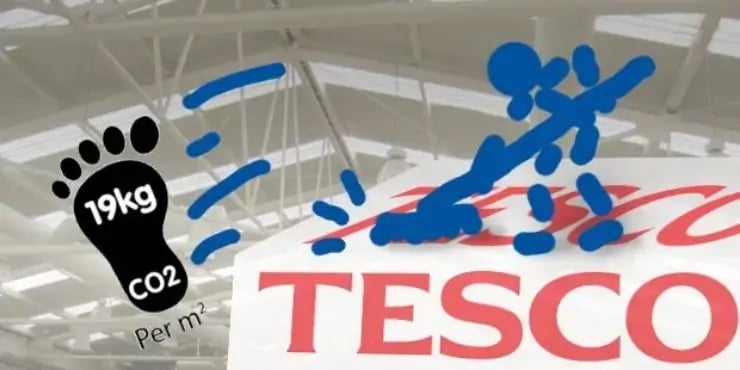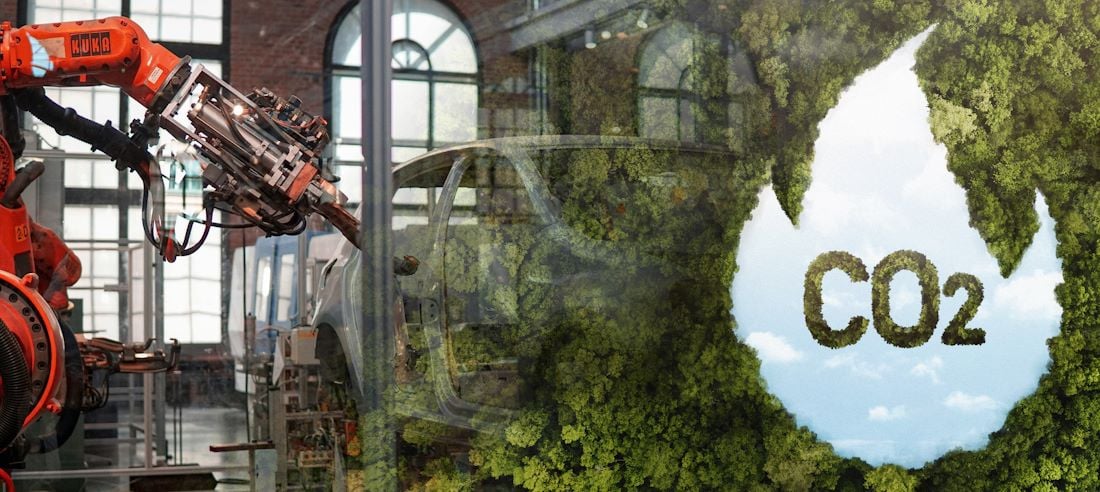A week ago, the Guardian published the news that the Tesco grocery store chain dropped its plan to put a carbon label on all of its products. I felt a little sorry for the carbon trust, but I wasn’t surprised at all. Why? Because I didn’t expect a true commitment to sustainability from Tesco in the first place. In this article, I tell you why, and I explain the possible conclusions you can draw from this.
1. Protected by Oligopoly, Supermarket Chains Will Never Foster Sustainability
Like all the players in the oligopoly of the supermarket business, the Britain-based multinational grocery retailer works under imperfect market conditions. Following the logic of economies of scale, these businesses have expanded so radically that there are only a handful of competitors left. This oligopolistic situation creates a market that is not actually a market. Very often, suppliers are completely at the buying agent’s mercy because there is no realistic alternative to marketing their products other than to the giant. As a matter of fact, the economic disequilibrium leads to an advantage for the supermarket’s financial situation in that it need not allow any spare room for social or ecological values.
Moreover, in many villages, and even small towns, there is only one local retailer left – one of the oligopoly players. As a result, there is no competition. When there is no competition, customers have only one choice – go to this store or grow their food themselves. (Or go on hunger strike, of course). Environmentally concerned customers who lack the motivation or the space for home grown foods automatically support the “local” store – whether it has an effective environmental policy or not. Why should one of these players bother about sustainability, when they do not gain a competitive edge from it?
“The Grocer” magazine’s article, first to deal with Tesco’s draw back from carbon footprinting on January 28th, clearly illustrates the thinking that is along these lines:
The supermarket giant has also told of its frustration that other leading retailers failed to follow its lead, which meant the label was unable to gain sufficient critical mass.
2. Mainstream Retailers Don’t Care About the Origin of Their Products
When your interest in sustainability is based on a superficial marketing concern, clarifying the true nature of your products is too complicated to realize.
Tesco told The Grocer it had decided to wind down the project after finding research for each product involved “a minimum of several months’ work”.
Global distribution lines are extremely complex, yes. But instead of taking this state of affairs as an excuse to not effect carbon footprinting, like Tesco did, the situation should be taken as an occasion to reduce complexity and to support local supply chains. Tesco and its rivals could use their power to put pressure on their suppliers in order to make them calculate the carbon footprints themselves, at least within a scope of cradle to gate. Increasing transparency would, at the same time, not only generate trust and environmental benefits, it would also save money! Not happening here.
3. Plastic Packaging, Car Friendly Structure, Long Transport Distances – They’re Stuck in the Oil Era
Looking at the structure of supermarket chains the size of Tesco’s, it is not hard to deduce the paradigm behind them. Financial profit is the goal, and cheap fossil energy is the fundamental ingredient. Huge parking lots encourage customers to use energy-intensive individual transport, packaging materials are plastic and are used in abundance, all products are available all year and they have long transport chains.
This is the logic of the oil era. Why should a company that benefits from this logic make real changes, even if it has announced that it will be carbon neutral by 2020? No, I guess they will continue to burn oil. Following this logic, buying tree planting certificates somewhere in the world is probably the most “cost-effective” way to achieve carbon neutrality. A cosmetic carbon neutrality, to be clear about this.
4. Alternatives
Well, if the large players won’t practice sustainability, who will? In decreasing order, I conclude by naming some alternatives for getting food.
- Grow your own
It is increasingly convenient to do so, even in an urban environment. Try googling for community gardening in your area, and be sure to check out the amazing window farming project. - Go to a local organic farmers market
- Go to a local conventional farmers market
- Compare the prices in the local organic food store
- Look into an organic supermarket
- Check product’s for carbon footprint labeling, and ask the staff if you don’t find it
- Keep asking the staff for organic products and for carbon footprint labels in your conventional supermarket
The brave might also even consider dumpster diving. Find a comprehensive manual here.
Article image by Moritz Bühner for knowtheflow.![]()





